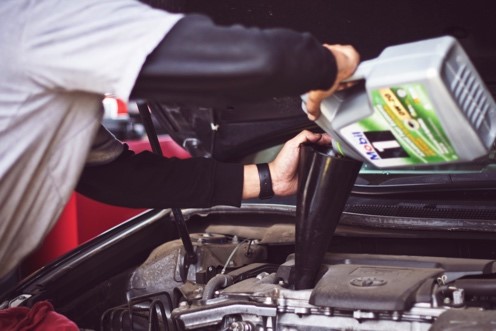
Passing your driving test is a rite of passage. It represents freedom, and one of the first moves from childhood into being an adult for many people. Younger people generally start off their driving career in a parent’s vehicle, and this is a good way of building up your driving experience before taking the plunge and buying a car of your own. But eventually you are going to get to the stage of needing your own wheels.
There is a huge amount of conflicting information out there about the best way of going about getting a car. Your decision will mostly be based on your personal circumstances, but there are some things you definitely need to know, whatever the situation.
Be Realistic
Although you might have your heart set on a bright red sports car with all the bells and whistles, is this really the best choice for a novice driver? Most of us learn to drive in small, modern cars and getting a similar model to the one you have been learning in will help you make the transition more easily. When you start looking around, the first aspect to consider should be budget. It’s never worth getting into unmanageable debt over a car, however shiny it is. Check online to see what sort of loan the bank might be prepared to offer you, and crunch the numbers on the monthly repayments. Stick to your pre-agreed budget and don’t allow yourself to be sidetracked or seduced by the tempting offers a dealer might be dangling in front of you.
Insurance
The biggest cost for all new motorists is insurance, especially for those who pass their test while still in their teens. The high insurance costs for this age group are purely because they are more likely to be involved in an accident, mostly due to a combination of age and lack of driving experience. Premiums of over £1000 per year aren’t unusual. Choosing an older car with a smaller engine will reduce your insurance costs. Look at insurers which offer a “black box” policy – this is software which sits inside your car and measures your speed and whether you are braking or accelerating rapidly. Drive well, and this data can be used by the insurance company to reduce the costs. Once you are through your first year, accident and claim free, the premiums will start to come down. Consider adding an older, more experienced relative as a named driver on your policy as this can often reduce the costs too. Setting up a policy in their name and adding yourself as a named driver isn’t allowed though. Look into a “pass plus” or Advanced Driver qualification. These courses will build on your existing driving skills, and give you more experience in handling extreme weather conditions, skidding, or driving on motorways. Some insurance companies will offer a reduced price for customers passing these sorts of courses.
Car Tax and MOT
The other two main annual costs you face as a new motorist are car tax and MOT charges. The tax won’t increase just because you’ve only recently passed your test, as it’s based on the type of engine and how polluting it is. If you’re trying to save money, look online to see which types of car attract lower tax. If you’ve already seen a car, you can log into the DVSA website using its registration number to see which tax band it falls into, as well as when the tax is due. You can manage paying for car tax online, and it’s a very simple and straightforward process. Most new drivers don’t buy a brand new car, and if the car you’re looking at is over 3 years old, it will need a MOT test too. Again, you can check online to see when the car’s existing MOT certificate runs out. The test itself isn’t the expensive bit, as prices are capped by the government. It’s the repairs after faults have been discovered which can be expensive. Minimise the risk of being hit by an expensive bill by paying attention to regular maintenance and not ignoring any warning lights on the dashboard.

Practice your Haggling
We’re fairly rubbish at haggling in the UK, but it’s a skill you might have to work on if you are thinking about buying a used car. The key to driving a good deal on your car is knowing what it is worth, knowing your budget, and being prepared to walk away. The seller isn’t going to knock some money off the price if you’ve already told them how desperate you are to buy. If you’ve seen a similar car elsewhere at a lower price, ask the seller to match it. Or if you are buying from a dealer, ask them to throw in some extras such as a tank of fuel, car mats or first service free if there’s nothing they can do on the price. Asking for a discount isn’t cheeky and the seller won’t refuse to sell if you’ve asked. Any problems you find on the car could also be a reason to reduce the price, although inexperienced drivers often just prefer to walk away from a car with serious faults.
Know the Law
There are different rules which apply to new drivers, and falling foul of the law could mean losing your licence and having to sit the test all over again. And if you have to disclose that you’ve lost your licence to an insurer, premiums will rocket. More experienced drivers can accumulate 12 points on their licence before it’s taken away from them. For novice drivers – whatever their age when they pass their test – this limit is reduced to 6 points within two years. Speeding or running a red light usually incurs 3 points, so 2 offences and your licence could be removed. If you lose your licence within the first two years, you will have to retake both the theory and practical elements of your driving test.
The post Things You Need To Know When Buying Your First Car appeared first on Motorward.